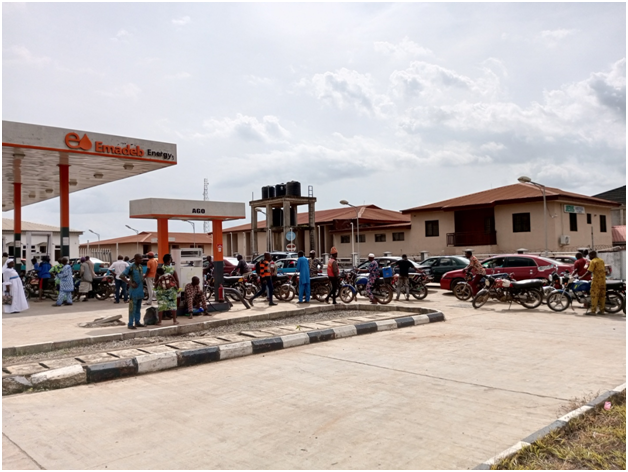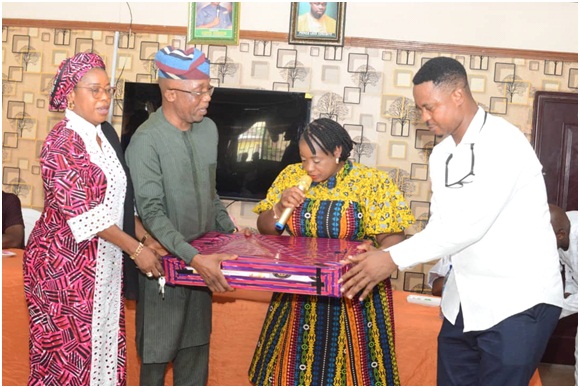FRSC and Nigeria’s Unsafe Roads
THE Federal Road Safety Corps (FRSC) was established in Nigeria in 1988 as a response to the menace of avoidable incessant road crashes and loss of lives. Prior to the establishment of FRSC, several attempts were made to stem the dangerous tide in road accidents and its fatalities in the country. Some of these initial efforts include Motor Traffic Ordinances of 1913, 1916; creation of traffic unit, safety campaign; establishment of Vehicle Inspection Officer(VIO); establishment of Road Safety Advisory Commission (RSAC) in Federal Ministry of Works); the Nigerian Army Public Road Safety Campaign Week; Oyo State Safety Corps(Majamaja) and National Road Safety Commission (NRSC) in 1974 among others to address the growing accident rates and its fatalities in Nigeria.
UNFORTUNATELY, these efforts did not achieve the desired objectives of reducing road accidents in the country. Instead, it continued to rise steeply to its worst decade between 1974 and 1983 in which accidents in the country increased by 10.4 percent. With the continued dangerous trend of road traffic accidents in Nigeria then, which placed it as one of the most road traffic accident (RTA) prone countries worldwide (the most in Africa), made it incumbent for actions to stem the dangerous trend. Consequently, in February 1988, the Federal Government established the Federal Road Safety Commission through Decree No. 45 of 1988 as amended by Decree 35 of 1992 referred to in the statute books as the FRSC Act cap 141 Laws of the Federation of Nigeria (LFN), passed by the National Assembly as Federal Road Safety Corps (establishment) Act 2007.
ESSENTIALLY, the commission was created to perform the function of making Nigerian highways safe for motorists and other road users, recommending works and devices designed to eliminate or minimize accidents on the highways and advising the Federal and State Governments including the Federal Capital Territory Administration and relevant governmental agencies on the localities where such works and devices are required, and educating motorists and members of the public on the importance of discipline on the highway.
SOME of the important responsibilities of the Commission include preventing or minimizing accidents on the highway, clearing obstructions on any part of the highways, educating drivers, motorists and other members of the public generally on the proper use of the highways, designing and producing the driver’s license to be used by various categories of vehicle operators and educating drivers, motorists and other members of the public generally on the proper use of the highways among others.
THE Commission started on a very good note with Professor Wole Soyinka as the first Chairman in 1988. During this period, the commission was very disciplined, effective and discharged the onerous tasks of making the Nigeria’s roads safe. However, because of a number of factors, the performance of the organisation seems to be on the decline as many of its staff have been accused of inefficiency, bribery and corruption. Thus, in recent times, the high respect being enjoyed by them has whittled down to the extent that many motorists don’t obey them as it used to be when the commission started.
IN recent times instead for road accident to be declining, it has been on the rise. The FRSC for instance reported that 4,387 persons died in road accidents in the first half of 2023 because of road traffic crashes from January to June across the 36 states and the federal Capital Territory (FCT), a 26 percent increase from 2022 figures. Also, on December 12, 2023, 18 persons died in a crash involving 65 persons along Abuja-Kaduna Road, while similar auto crash had earlier claimed 18 lives in Niger State. All these clearly indicate that the Nigerian roads are becoming unsafe due to incessant road crashes and deaths on the roads.
THE need to make the Commission more effective and the roads safer becomes imperative especially during the yelutide and new year celebrations. To make the Nigerian roads safe, the Commission needs to reenact its past effectiveness by reforming the organization to improve discipline among its staff members, train and retrain them on modern technique of keeping the road safe and procuring modern road safety equipment and gadgets that will make them effective. They need to eschew bribery and corruption to enforce traffic rules and regulation faithfully.
THE government needs to improve road conditions by improving the roads and installing traffic signs and signals to assist motorists plying the roads. Motorists need to imbibe the culture of obeying traffic rules and regulation as well as abhor bad habits such as drunkenness, excessive speeding and dangerous overtaking which are responsible for most crashes on the road. The people need to support and cooperate with FRSC by obeying traffic regulations including making their vehicles road worthy.










